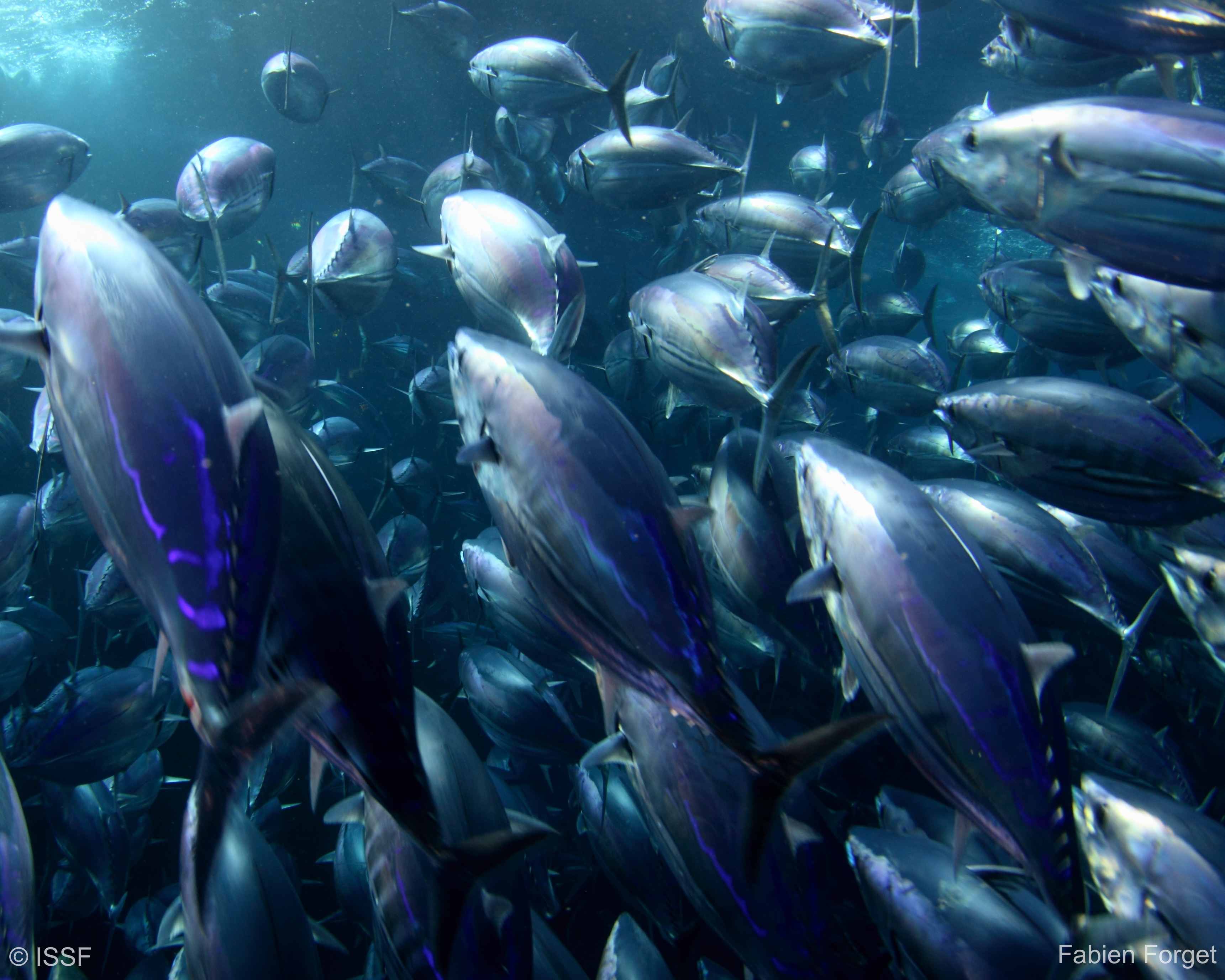
Updated ISSF Report Assesses Tuna Stock Sustainability Against MSC Criteria
The International Seafood Sustainability Foundation (ISSF) has published the latest edition of its comprehensive report, An Evaluation of the Sustainability of Global Tuna Stocks Relative to Marine Stewardship Council Criteria. The report assesses the 23 major commercial tuna stocks worldwide against the Marine Stewardship Council (MSC) Fisheries Standard, offering an informed view of global progress and remaining gaps in achieving tuna fisheries sustainability.
This edition applies v3.1 of the MSC Fisheries Standard, evaluating tuna stock health (MSC Principle 1) and the effectiveness of regional management frameworks (part of MSC Principle 3). The report’s insights are useful in informing seafood stakeholders and policymakers about where improvements are most needed to meet rigorous sustainability benchmarks.
Key Findings
Co-authored by independent experts Matthew Cieri, Geir Hønneland, Paul A. H. Medley, and Susan Singh-Renton, the 2025 report shows that 12 of 23 tuna stocks meet the critical MSC Principle 1 benchmark — demonstrating that they are not subject to overfishing and are maintaining target biomass levels. This finding represents a slight improvement over the 2024 report, which found 11 passing stocks. This year, South Pacific albacore earned a passing score.
The 12 passing stocks are:
- Atlantic Ocean: Western skipjack, Northern albacore, Southern albacore, Eastern bluefin
- Pacific Ocean: Western yellowfin, Western bigeye, Western skipjack, Eastern yellowfin, Eastern skipjack, South Pacific albacore
- Indian Ocean: Skipjack
- Southern Hemisphere: Southern bluefin
However, only seven of the 23 stocks have fully implemented well-defined harvest control rules. The continued absence of pre-agreed harvest strategies to implement controls before rebuilding is required, or to rebuild depleted stocks, remains a major barrier to broader MSC adherence.
“Although the report highlights important strides by tuna Regional Fisheries Management Organizations (RFMOs), it also underscores that the urgency remains for adopting effective harvest control rules to prevent stock decline and ensure long-term sustainability,” said Susan Jackson, ISSF President. “Healthy fisheries require both sound science and robust governance.”
About the Report
Since 2013, ISSF’s annual Evaluation report has provided a consistent, science-based framework to measure tuna fisheries against the MSC sustainability criteria. This year’s report stands out for several reasons:
- First use of MSC Version 3.1, which introduces more clear requirements around harvest control rules and other scoring elements
- Full reassessment of the tuna RFMO portion of Principle 3 (Effective Management) — updated for the first time in several years, following a thorough review by one of the report co-authors
- Updated scores reflect information available through March 2025
“These updates make the 2025 report especially useful,” said Dr. Victor Restrepo, ISSF Vice President of Science. “By applying the updated MSC criteria and reassessing management systems across all RFMOs, we’re able to provide clearer insights into where progress is being made — and where urgent action is still needed. And the report will be more helpful for fisheries that want to be certified using the updated MSC criteria.”
MSC Principle 1: Stock Status
MSC Principle 1 requires that fisheries avoid overfishing and support the recovery of depleted populations. The 2025 Evaluation report finds:
- No change in the number of stocks with well-defined harvest control rules since 2024 — still only seven of 23
- Failing stocks in the Atlantic: yellowfin, bigeye, Eastern skipjack, Mediterranean albacore, Western bluefin
- Failing stocks in the Pacific: Eastern bigeye, Northern albacore, Pacific bluefin
- Failing stocks in the Indian Ocean: yellowfin, bigeye, albacore
MSC Principle 3: Effective Management
MSC Principle 3 calls for an effective management system that ensures responsible and sustainable resource use while complying with legal and institutional frameworks.


